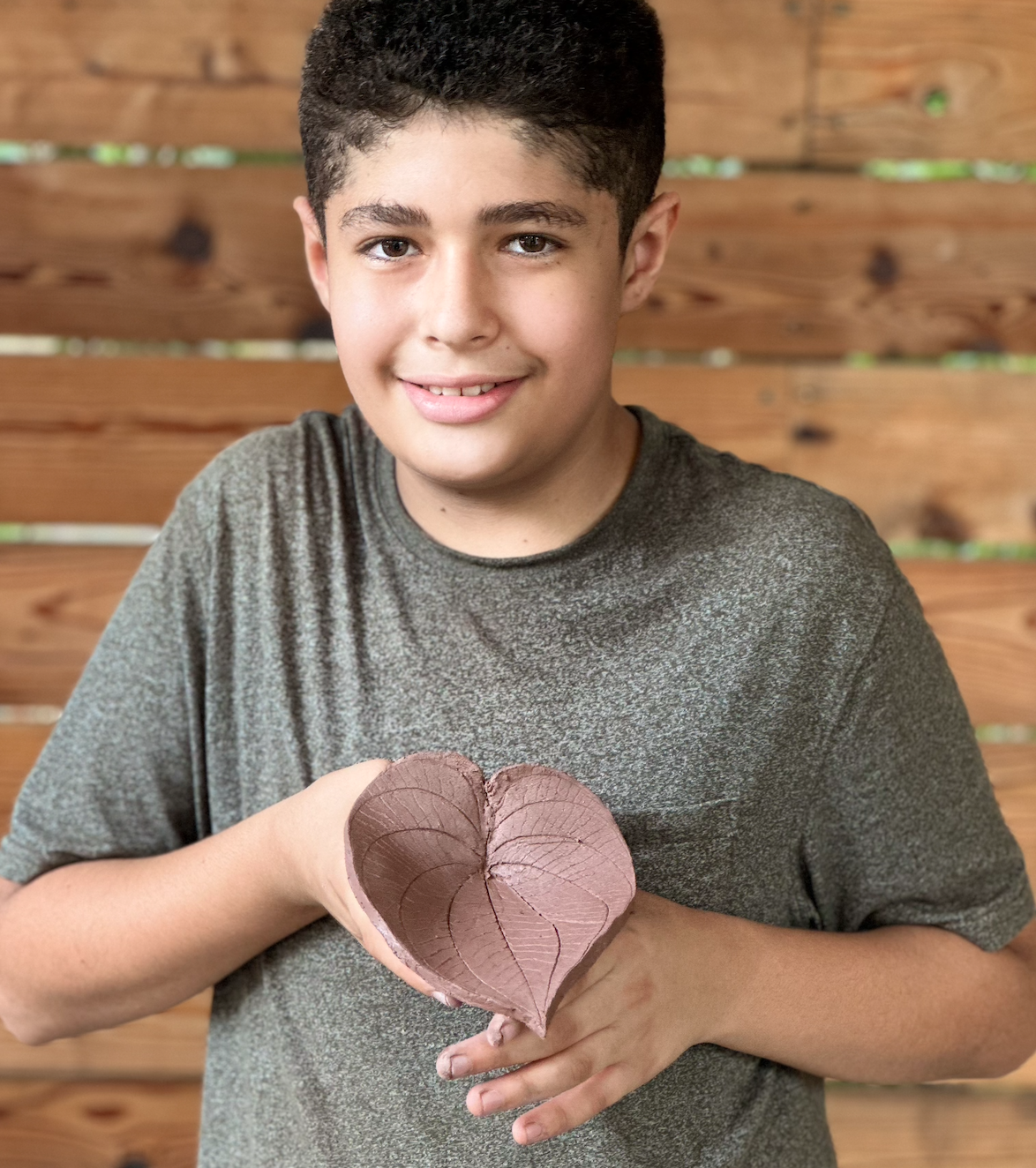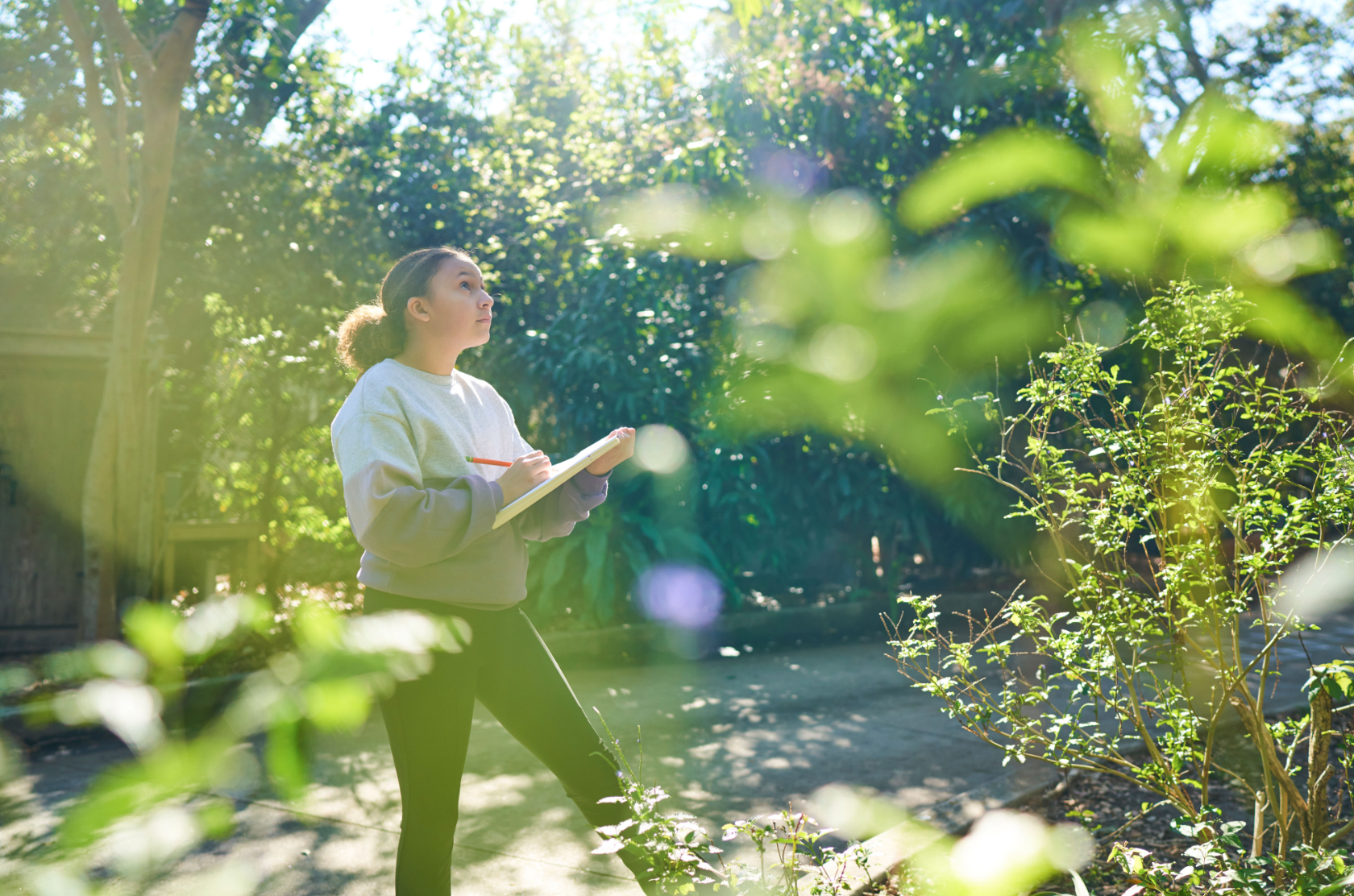
Middle School.
Grades 5-8.
Creating Leaders for the Future.
As students arrive on the cusp of adolescence, The Waldorf School of Tampa Bay’s rigorous upper grades program challenges their emerging thinking, reasoning, and curiosity. On an ever-deepening base of foundational skills, students explore the world without and within. The children hone their powers of perception through continuing work in diverse fields of fine, practical, and performing arts, and they develop skillfulness in the context of a challenging and engaging practice. Our middle school curriculum is outlined below.
Language Arts.
English. Students develop foundational skills in vocabulary, grammar, composition, and writing of reference papers. They also explore elements of poetry and figurative language, including ballads, sonnets, epics, Chaucer and Shakespeare, short stories, modern American and British novels and plays.
History. From Rome, through the Middle Ages, the Renaissance, Age of Enlightenment, revolutions, industrialization, and into modern times, students trace the development of Western civilization to the present.
Math.
Geometry. Geometric drawing with instruments, plane geometry, solid geometry, and Platonic solids.
Mathematics. Percents, ratio, proportion, areas, formulas, algebra from the simple equation through quadratics, powers and roots, binary system, inequalities, numerical trigonometry, probability, logic and problem-solving.
Geography. Western Hemisphere and the poles, Europe, Africa, the Middle East, Asia, oceans and winds of the world, world economic geography.
Science.
Natural sciences. Mineralogy, geology, astronomy, meteorology, human physiology, anatomy, botany, ecosystems and biodiversity.
Physics. Optics, acoustics, heat, electricity, magnetism, hydraulics, mechanics.
Chemistry. Biographies of noteworthy chemists and watershed bearers of new ideas in the history of chemistry and modern scientific thinking, fundamentals for a phenomenological study of chemistry. Combustion, lime cycle, acids, bases and salts, metals, and food & nutrition.
Subjects.
World Language. Middle school students dive more deeply into Spanish with class three times a week and an emphasis on literature.
Music. Choir is added to the flute and violin, and an emphasis on sight reading and writing music notation is amplified as the student matures.
Hand Work. Cross stitch, quilting, pattern-making and creating their own clothing is taught in the upper grades, with students leaning to use the sewing machine in Grade 8.
Practical Arts. Students continue to care for the campus through gardening and Earth stewardship, learn pottery and whittling and deepen their skills in furniture building with the addition of power tools.
Games. Skills in sports and teamwork is enhanced as children engage in Soccer, GaGa Ball, Volleyball, Basketball and Archery.







“I think the result of Waldorf education is to raise our consciousness. It made me a good listener, sensitive to the needs of others. And, it helped establish meaningful beliefs. Waldorf taught me how to think for myself, to be responsible for my decisions.”
— Kenneth Chenault, American business executive, former Chariman of American Express




